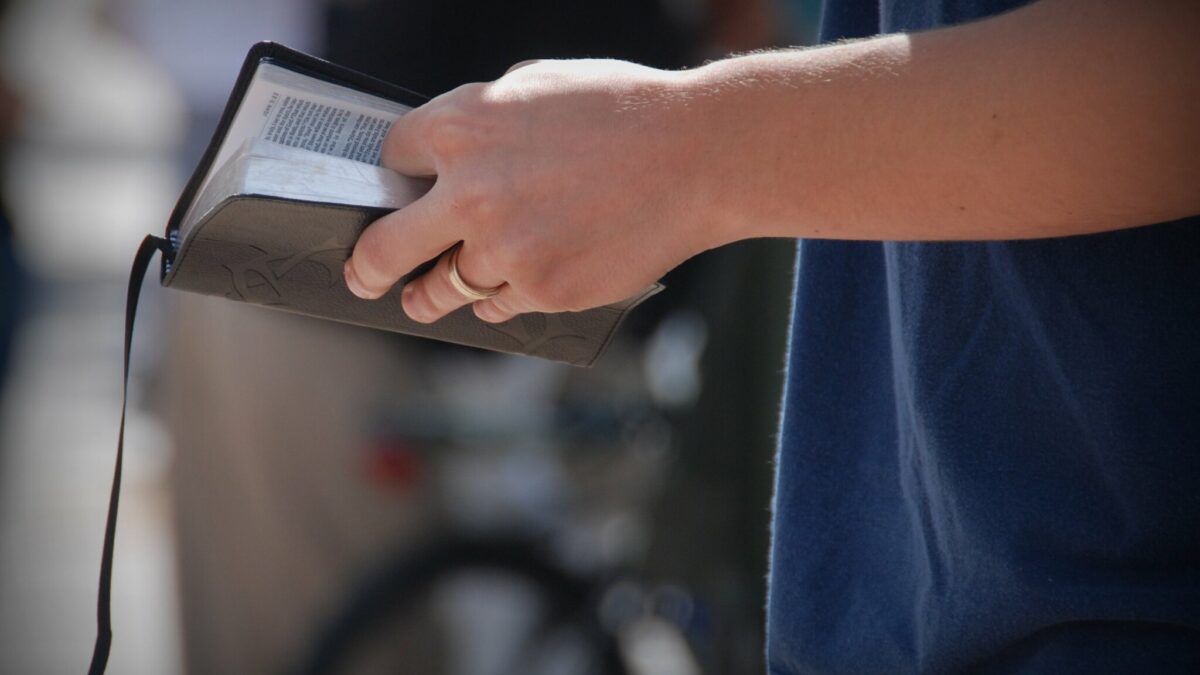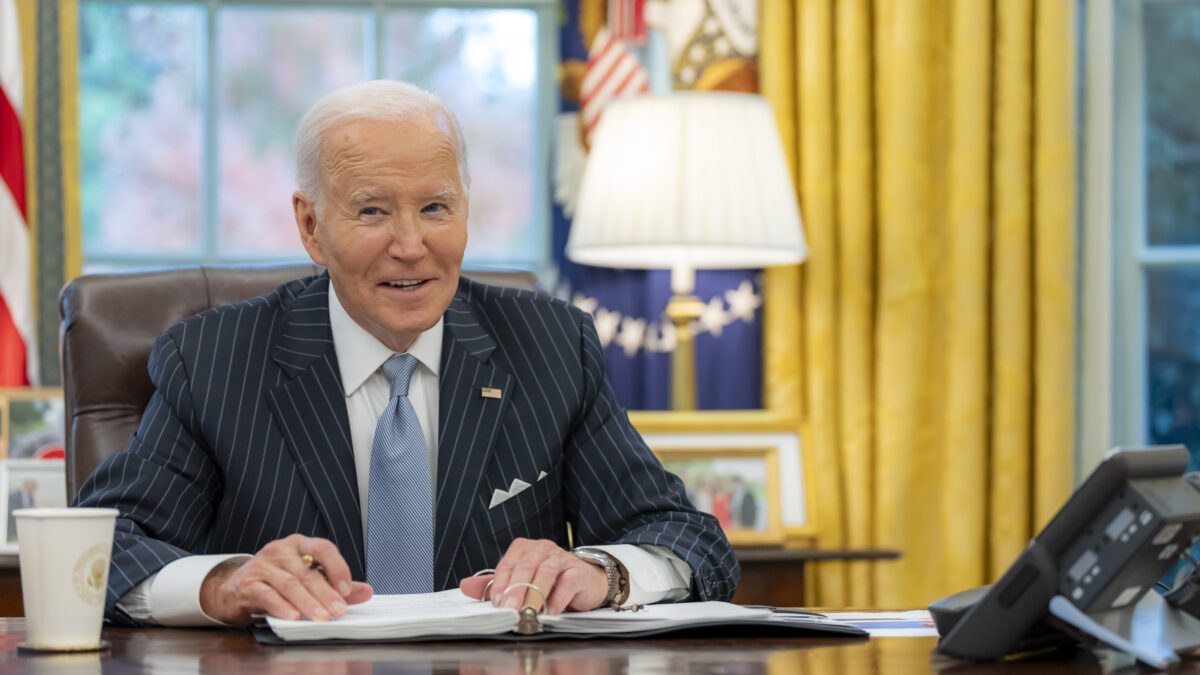
If you want to understand what’s happening to religion in America, you could do worse than consider what’s happening to Jar Jar Binks.
Absurd, you say? At a moment when outraged clergy are lecturing New York Times columnists for daring to accuse them of heresy, the attention lavished on the latest “crazy” Star Wars fan theory holds up a certain kind of mirror.
For those of you tucked away in a mountaintop monastery, a Reddit user—code name: Lumpawarroo—has argued in a lengthy post that the reviled Binks was actually a trained master in the Force, a pretend stooge who in fact was in league with Emperor Palpatine. Perhaps, Lumpawarroo suggested, Binks was the true dark master of the whole Star Wars universe. “Phantom Menace” indeed!
Spiritual, But Not Religious
Recover from this blow to all you believe as I indulge in a little theory-mongering of my own. We begin in Japan, where Buddhism has become only the latest of the ancient institutions to crumble. Temple attendance is “fading away in a puff of indifference,” as The Economist recently sighed. “Japanese people are growing less religious, and less numerous, every year.”
Although some temples now “run cafes, organize fashion shows or host funerals for pets,” still “hundreds close every year. By 2040, 40% may have gone,” according to a new book on the crisis. All told, the Japanese just can’t find a way to make chic “Eastern spiritualism” work in a country where fewer and fewer care about spiritualism at all.
That might send a shiver through some religious Americans worried about our own potential freefall into secular oblivion. But many traditional Christians would tend to take G.K. Chesterton at his word that when we cease to believe in God, we sooner believe in anything than in nothing at all.
On this count, our pop culture runneth over. To the point of rank superstition, we’re crazy for spirituality. Our cults and “churches,” our fads and fandoms, our movements and moralisms run riot over a landscape of the soul every bit as crisscrossed and convoluted as Jar Jar’s “clueless” march toward destiny.
If one thing is clear, it’s our grand psychological wager on the yielding richness of “Eastern” religion. For us—hang out in California for a long weekend if you’re unsure on this point—“Eastern” vibes are just the logical next step on the spiritual journey westward, as natural as the movement of the sun. Free from the actual historical and cultural baggage of Buddhism, Shintoism, or who knows what musty creed, we’re free to pour whatever personally curated content we choose into the blissful vacancy that awaits—tastefully decorated, like a desert hotel, with select suggestive cues.
We Want to Do Our Thang
Being Americans, however, we’re not about to lapse into nirvana. Our civilization is way too young and materialistic. Respites are great, but we want action. We want movement, speed, physicality, only sprinkled with the pauses that refresh.
For many Americans, herein lies the problem with traditional Christianity. It feels too hidebound on the one hand and too passive on the other, both features that seem to “marginalize” and “devalue” the sensation of movement. At the same time, traditional Christianity seems too public or risky yet also too private or anxiety-inducing. We want ways to share in an empowering celebration of our awkwardness, our absurdity, and our informality.
Despite the efforts of some cool Christians to play up the faith as an answer to these democratic, culturally tweenlike prayers, many Americans reflexively back away. More and more of us seem to relate more readily to one of our growing cast of rebooted superheroes—themselves, increasingly, tweenlike.
So (here’s where our theory really kicks in), it’s just naturally in the course of things that Americans faced with this dilemma of spiritualism would look East for an easy out —for a way of reconciling the things that feel so irreconcilable in Western religion, yet so constitutive of our real-life experience. We want to be casual in our discipline, confident in our gawkiness, and secure in our conspicuousness. What’s more, we want this spiritual small-ball to unfold onto—and bathe us in—the all-encompassing significance of the entire universe. That’s the kind of force we want in our lives.
As you feel this force flow through you, recall the details of the Darth Binks theory. One key piece of evidence concerns his behavior on the battlefield, which features movements remarkably similar to the “drunken fist” style of kung fu. “This discipline seeks to imitate the ‘sloshing,’ seemingly random foibles of a drunkard,” Lumpawarroo insists, “but in reality the staggering and stumbling is the use of bodily momentum, deception, and unpredictability intended to lure and confuse opponents.”
Jar Jar Binks: Today’s Superhero Demigod
Could this be the open secret to the theory’s gripping power? To be sure, one reason the Darth Binks theory is going viral is simply that it’s about Star Wars. Also, it makes a pretty persuasive case for flipping the saga on its head—feeding coincidentally (?) into those rumors that Luke himself will have joined the Dark Side in the upcoming final (?) trilogy.
Plus, it replicates the classic superhero myth, familiar from “The Matrix” to Star Wars itself, wherein some “random” guy discovers that vibing out deeply will reveal his unextraordinary self to also be a tremendously significant part of the universe. It’s irresistible to indulge the possibility that Jar Jar recapitulates that theme in a way that’s been hiding in plain sight.
But perhaps the real reason the theory has caught on is also hiding in plain sight. Perhaps Master Jar Jar is a safe, inviting caricature of the vision of religion that is ascendant today. Like the selves of our dreams, he’s casual yet disciplined, confident yet gawky, secure yet conspicuous—thanks to a Force generous enough to let Jar Jar do Jar Jar.
Lumpawarroo believes Jar Jar’s tacky yet unrefined immaturity is all an act—a trope, Reddit users quickly noted, well familiar from Asimov’s Foundation series. But for us Americans, tacky and unrefined immaturity is never merely an act: it’s a way of life. If any Force can give us meaning, significance, and power without making us put away childish things, well, we’re listening. That’s the bargain we want to strike.
Beneath everything else yet overarching all, the idea of Master Jar Jar tips us off to the spiritual ends we’re so apt to seek the means for within “Eastern spiritualism.” As nothing more than a surprise Sith Lord, Master Jar Jar is safely, laughably spooky. But as a symbol of our errant view of the art of the spiritual deal, this unlikely villain is something far more dangerous indeed.









